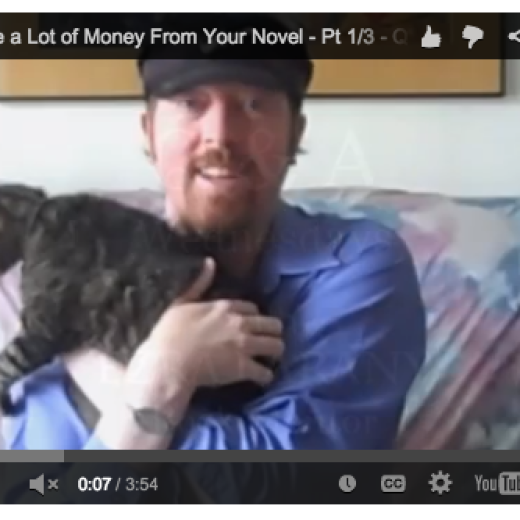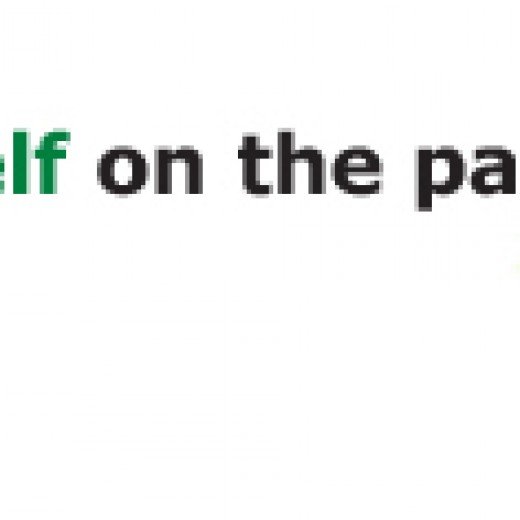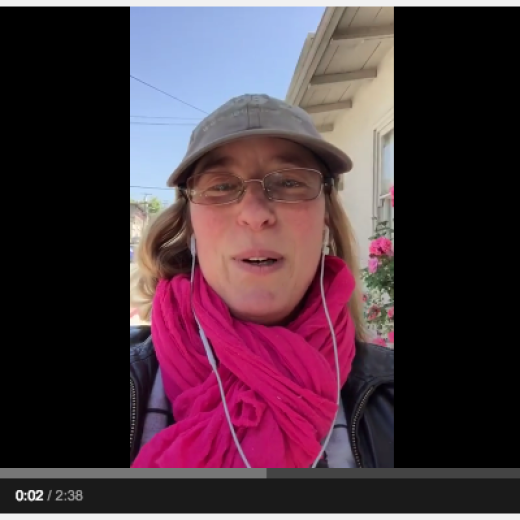Giving Your Writing A Proper Place in Time and Space by Beth Barany
 On Giving Your Writing A Proper Place in Time and Space … Confession: I only work on my own novel about one to three hours a day — the creative parts I mean, whether those parts are planning/brainstorming, writing the first draft, or editing.
On Giving Your Writing A Proper Place in Time and Space … Confession: I only work on my own novel about one to three hours a day — the creative parts I mean, whether those parts are planning/brainstorming, writing the first draft, or editing.
The rest of the time I’m of service, helping my clients by editing their books, or coaching, or teaching, or business planning, or marketing my services (or novels), or doing the administrative details of running two businesses.
I’m fine with this.
But it used to be such a struggle to find time to write. It felt like pushing a huge boulder uphill. So not fun. Downright painful and near impossible.
I felt like my business was saying, “Hey, me first! I feed you. I clothe you. Pay attention to ME!” Yelling, of course. At least it felt that way. In the first few years, it was a scramble to work on my business too; I was a newbie at it with no training or background in entrepreneurship.
And my writing self was sad, sitting in the corner, feeling neglected, like the lost child.
It took me a long time to resolve this apparent conflict.
My “children” were fighting for my attention.
A lot like what it was like to grow up in a family of four children, all born within seven years of each other. Me being the eldest, I cultivated the “be responsible” big sister behavior really well.
A young mother, Mom scrambled to take care of us. She did beautifully. We always had home cooked meals; we always had clothes on our backs. Dad was in background, paying for our busy, hungry, fast-growing selves.
As you do, you cope, adapt, make the best of your childhood circumstances. There is no other way when you’re a kid; you don’t know any better. That childhood is all you know.
I was used to all that competition, even though it was painful.
A few years into my business as a creativity coach for writers, I knew this competition between the business side of taking care of clients and writing fiction was untenable.
I was unhappy. I was stressed when I worked on my business because my creative side felt neglected. And when I was writing I felt guilty that I wasn’t paying attention to the business.
Something had to change, but I had no idea how.
I knew I couldn’t let my writing go. Fiction was part of my happiness. Being creative in the way was my lifeblood; plus by then I’d already dedicated over a decade to learning how to write novels.
And, how could I be a creative coach for writers and not being writing myself? I couldn’t and still be a coach for writers with any integrity.
But my business needed me, badly.
It felt like I was facing an impossible situation.
So it was either give up writing fiction and give up doing a profession I loved helping writers, or find a way to resolve this conflict between my need to write fiction and my need to run a business that worked for me.
At the peak of this inner conflict, I was only about 2-3 years into running myself and pretty clueless about how to make it all work. That’s why it felt like the business needed a lot of my focus and time.
The first hint of resolution came when a business coach recommended I give up writing fiction as a business. That’s all he said.
I hadn’t yet published in fiction, though I was trying to. I was querying agents and publishers and getting nowhere.
I first was pissed off. No way was I going to give up fiction for all the reasons I listed above.
So I dug in and fastened tighter to my commitment to write fiction.
Second, I realized that I could de-prioritize writing fiction and put it into a new position. That of being a serious hobby. It wasn’t a business, yet.
I relaxed around fiction and realized that my commitment to it didn’t have to lessen, just how I thought about it and where I put it on the priority list.
Suddenly, my business and my creative writing were no longer in conflict.
One was in the priority position as the “main business.” The other had an honored second position as the “serious hobby.”
I relaxed and was able to focus better on both of these important activities.
What results came out of this shift in priorities?
I continued to pursue trying to get published and even got some agents very interested in my first young adult fantasy novel. But this was during the indie publishing boom that started in 2011. So I decided to self-publish my first novel, Henrietta The Dragon Slayer, in early 2011.
The agent’s request to take me on came right after that, but when she found out I’d already published, she didn’t want to take me on. She already had one indie-first author and didn’t want to take a chance on two unproven authors.
I was fine with that and have never looked back.
On the business side of things, I instituted new systems, got more admin help, and started focusing on building programs. I was making forward progress, and that felt good.
I still only work on my own fiction two to three hours a day and now have 8 novels published, a 4-book series due out next year, and several unpublished books in the wings, plus a new series in development.
The coaching and teaching business has entered a more mature and stable phase, and I am happy with the way things are moving.
I am more committed than ever to writing fiction, and am happy with the amount of time I spend on it. I see my forward movement and I don’t put pressure on my fiction to sustain me financially. That was causing me so much stress. Maybe it will own day, and that would amazing.
YOUR TURN
- What’s the takeaway for you? How is inner conflict holding your creative work back?
- What re-prioritization can you make to shift things so you can get your creative work done?
If you’re so moved, share your comments below.
***
ABOUT BETH
 Hi! I’m Beth Barany, an award-winning novelist, master neurolinguistic programming practitioner, and certified creativity coach for writers.
Hi! I’m Beth Barany, an award-winning novelist, master neurolinguistic programming practitioner, and certified creativity coach for writers.
Through my courses, programs, workshops and consultations, I specialize in helping writers experience clarity, so they can write, revise, and proudly publish their novels to the delight of their readers.
All my courses are packed with useful hands-on information that you can implement right away. I run an online school for fiction writers here and a 12-month group coaching program to help novelists get published here. I also offer consultations for writers here.







A very informative and enlightened Post. The concept that took hold of me most is the idea of writing as a “hobby”. I believe that developing this mind-shift will significantly decrease the stress that I have been experiencing which is caused by the conflict I have between the desire to write and the need to take care of the business at hand, that is my job. Thanks for sharing your wisdom!
I’m so glad it was helpful, Mary!